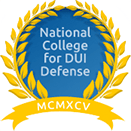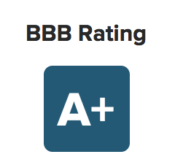
If you find yourself facing a legal situation in a New Jersey municipal court, it’s essential to understand the rules and procedures that govern arraignments and pleas. Below, we’ll explain Rule 7:6 of the New Jersey Rules of Court, which specifically covers arraignment and pleas. By grasping the key points outlined in this rule, you’ll be better prepared to navigate the legal process as a potential criminal defendant.
Facing criminal charges in New Jersey? Let an experienced criminal defense attorney at The Law Offices of Jonathan F. Marshall fight for you. With over 200 years of combined experience, our 11 dedicated criminal defense lawyers, including seven ex-prosecutors and certified trial attorneys, stand ready. Notable accolades among our team include selection to the National Trial Lawyers Top 100, Top 40 Under 40, and the Super Lawyers Rising Stars 2021 list. For steadfast advocacy and a committed defense, call us at (877) 534-7338 or visit us online today.
Arraignment – Explained
 The first step in the court process is the arraignment. This formal court proceeding is where the court presents the charges against you and gives you an opportunity to enter a plea. Typically, the arraignment takes place in open court. During this process, the complaint against you is either read out loud, or the judge summarizes the charges to ensure you understand them. After receiving a copy of the complaint, you will be asked to enter a plea. However, if you have a lawyer representing you, you may choose to waive the reading of the complaint.
The first step in the court process is the arraignment. This formal court proceeding is where the court presents the charges against you and gives you an opportunity to enter a plea. Typically, the arraignment takes place in open court. During this process, the complaint against you is either read out loud, or the judge summarizes the charges to ensure you understand them. After receiving a copy of the complaint, you will be asked to enter a plea. However, if you have a lawyer representing you, you may choose to waive the reading of the complaint.
Written Statement Option
If you have legal representation and wish to plead not guilty, you have the option to submit a written statement instead of appearing in court for the arraignment. This statement, signed by your attorney, must confirm that you have received a copy of the complaint, understand the charges against you, and plead not guilty.
Available Pleas And Guilty Plea Requirements
When it comes to pleas, a defendant has two options: the defendant pleads guilty or not guilty. The court has the authority to refuse a guilty plea if it deems necessary. However, before accepting a guilty plea, the court must ensure that you understand the nature of the charges, the consequences of your plea, and that there is a factual basis for your guilt. In cases where you are unrepresented and face a significant consequence, the judge must determine that you knowingly and intelligently waived your right to counsel. If you refuse to enter a plea, remain silent, or the court rejects your guilty plea, a not guilty plea will be entered on your behalf.
Plea Agreements And Their Requirements
Plea agreements, which outline the terms of a negotiated settlement, can only be entered into under specific conditions. These conditions include being represented by counsel or knowingly waiving your right to counsel, consulting with the complaining witness, and ensuring that the agreement pertains to a matter within the jurisdiction of the municipal court. Additionally, plea agreements must not circumvent minimum sentencing requirements for the offense in question.
Withdrawal Of Plea And Conditional Pleas
If you have entered a guilty plea but believe it was a mistake or there was a significant injustice, you may file a motion to withdraw your plea before sentencing. In exceptional cases, the court may allow the withdrawal of a guilty plea even after sentencing. Conditional pleas, where you enter a guilty plea but reserve the right to appeal a specific pretrial motion, are also possible with the court’s approval and the prosecutor’s consent.
Guilty Plea By Mail Or In An Electronic System
For certain non-traffic and non-parking offenses, you may have the option to enter a guilty plea through mail or an approved electronic system. However, this method is subject to several limitations. It cannot be used in cases involving mandatory incarceration, issues of defendant identity, acts of domestic violence, or cases where a custodial term may be imposed. Ultimately, the court will decide if allowing a guilty plea without your physical appearance is in the interest of justice.
Arraignment Under N.J. Ct. R. 3:9
Arraignment is a crucial stage in the criminal process, and it’s essential for potential defendants to grasp its significance and procedures. Below, we’ll break down the New Jersey Rules of Court, specifically Rule 3:9, which governs pretrial procedures and provides valuable insights into the arraignment process.
Post-Indictment Procedure
Following the return or unsealing of an indictment, certain steps are set in motion. The prosecutor’s office is responsible for providing you, the defendant, with a copy of the indictment and all available discovery materials relevant to your case. If a plea offer is presented, it should be in writing and included in the discovery package. The criminal division manager’s office will notify you in writing about the arraignment date, time, and location, which should occur within 14 days of the indictment’s return or unsealing. This notification also confirms your legal representation and the status of any application for public defender services, if applicable.
Arraignment In Open Court
The arraignment itself takes place in open court, typically within 14 days of the indictment. If you don’t have legal representation at this stage, the court may assign the Office of the Public Defender to represent you after you complete an application for their services. During the arraignment, the judge has several responsibilities:
- Advising you of the substance of the charges against you.
- Confirming that you have received the necessary discovery materials.
- Verifying that you have reviewed the indictment and discovery with your attorney.
- Allowing you to apply for pretrial intervention if desired.
- Informing all parties about the obligation to redact personal identifiers from documents submitted to the court.
At the arraignment, you are required to enter a plea to the charges. If you plead not guilty, your defense counsel will provide an update on plea negotiations and any other matters discussed that may contribute to the case’s fair and expeditious disposition. It is also customary for your attorney to inform the court about their intention to file motions according to the relevant rules.
FAQ
What Is An Arraignment?
An arraignment is a court proceeding where the charges against you are formally presented, and you are given the opportunity to enter a plea.
Can I Waive The Reading Of The Complaint During The Arraignment?
Yes, if you have legal representation, you have the option to waive the reading of the complaint.
Can I Submit A Written Statement Instead Of Appearing In Court For The Arraignment?
Yes, if you have a lawyer representing you and wish to plead not guilty, you can submit a written statement certifying your understanding of the charges and pleading not guilty.
What Are The Available Pleas?
You can plead guilty or not guilty to the charges against you.
Can The Court Refuse To Accept A Guilty Plea?
Yes, the court has the discretion to refuse a guilty plea. They must ensure that you understand the nature of the charges, the consequences of your plea, and that there is a factual basis for your guilt.
What Happens If I Refuse To Enter A Plea Or Remain Silent?
If you decline to enter a plea or remain silent, the court enters a plea of not guilty on your behalf.
Can I Withdraw My Guilty Plea?
Generally, a motion to withdraw a plea of guilty has to be made prior to sentencing. However, the court can permit a withdrawal after sentencing to correct a manifest injustice.
What Are Conditional Pleas?
Conditional pleas are entered with the court’s approval and the prosecutor’s consent. They allow you to plead guilty while reserving the right to appeal a specific pretrial motion.
Can I Enter A Guilty Plea By Mail Or Through An Electronic System?
In certain non-traffic and non-parking offenses, you may have the option to enter a guilty plea by mail or through an approved electronic system. However, there are limitations, and the court will determine if it is in the interest of justice.
How Soon Should The Arraignment Occur After An Indictment?
The arraignment should take place within 14 days of the return or unsealing of the indictment. This timeframe allows for a prompt initiation of the legal process and ensures that defendants are aware of the charges against them.
What Should I Expect During The Arraignment Following An Indictment?
During the arraignment, the judge will inform you of the charges against you, ensure that you have received the necessary discovery materials, and confirm that you have reviewed the indictment and discovery with your attorney. You will be given an opportunity to apply for pretrial intervention, and your plea to the charges will be entered.
New Jersey Criminal Defense Attorney For Your Arraignment Hearing
When faced with criminal charges in New Jersey and approaching your initial hearing, time is of the essence. Secure a robust defense with The Law Offices of Jonathan F. Marshall. Our 11 specialized criminal defense attorneys, with over 200 years of combined experience and multiple accolades, stand ready. We boast seven ex-prosecutors, two Super Lawyers Rising Stars, and a New Jersey Supreme Court-certified Criminal Trial Attorney. Let our knowledgeable team advocate for your favorable outcome. Don’t delay, reach out now at (877) 534-7338 or visit us online.











